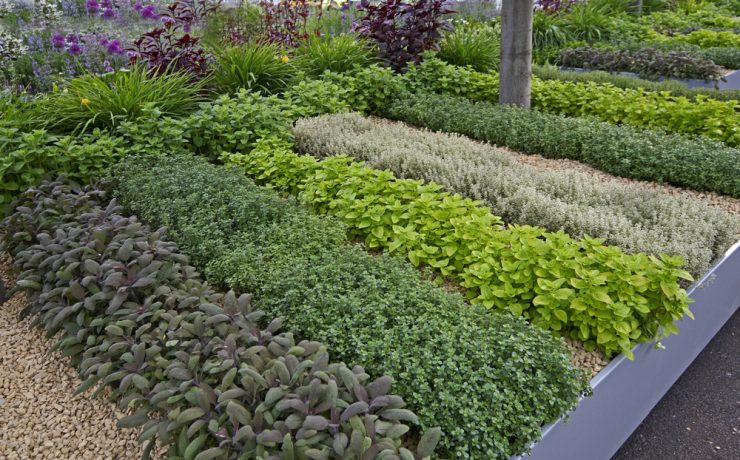There may still be a chill in the air but the soil is starting to warm up, which is just what herbs need to establish well.
Now is the perfect time to turn your hand to creating a herb garden, says editor Jane Garton.
As well as being good for health and wellbeing, herbs can be used to add flavour to a range of dishes and are the ideal alternative to salt. Here are some key ways to ensure your new herb garden is successful.
LOCATION, LOCATION
The first thing to decide on is location. For example, do you want your herbs close at hand so you can nip out through the back door to collect them? Or would you rather wander down to a secluded area in the garden away from the house so that growing and picking become a peaceful experience – another world full of delicious smells, colours and textures to which you can escape?
A south-facing plot with maximum light, warmth and shelter from cold winds is the ideal spot. Soil is important too. A well-drained soil is essential for growing herbs, so add sand to heavy clay.
Alternatively, if you live in the city and don’t have a garden you can easily grow herbs in pots, which you can display on your patio or windowsill.
DESIGN CHOICE
Once you have decided on position the next stage is design. Herbs suit a formal pattern particularly well. Shapes to consider include a simple square shape crossed at right angles or diagonal paths.
BUYING GUIDE
Although some herbs can be grown from seed it’s sometimes easier to buy plants. Rosemary and sage, for example, take a long time to grow from seed and are not fully hardy for several years so are better bought as plants. On the other hand, annuals like basil and parsley, are easy to grow from seed so long as it’s warm enough. Plants from garden centres normally establish quickly and can be used immediately.
TENDING YOUR PLOT
Most herbs don’t need much water and won’t thrive in water logged soil. However when growing herbs in pots make sure the soil does not dry out completely. Press your finger on the surface and if a little soil sticks to it there is some moisture in the soil, but if your fingertip stays clean and dry a light watering may be in order.
When it comes to fertilisers, herbs prefer a poor soil and shouldn’t be left to grow too lush as this can boost their oil content, which reduces their taste and fragrance. Use plant-based compost rather than animal manures and avoid artificial fertilisers, which require lots of water.
FURTHER READING
For ideas on which herbs to plant and their medical benefits check out Herb Health: Grow your Own, Flower power and Grow your own herbs























